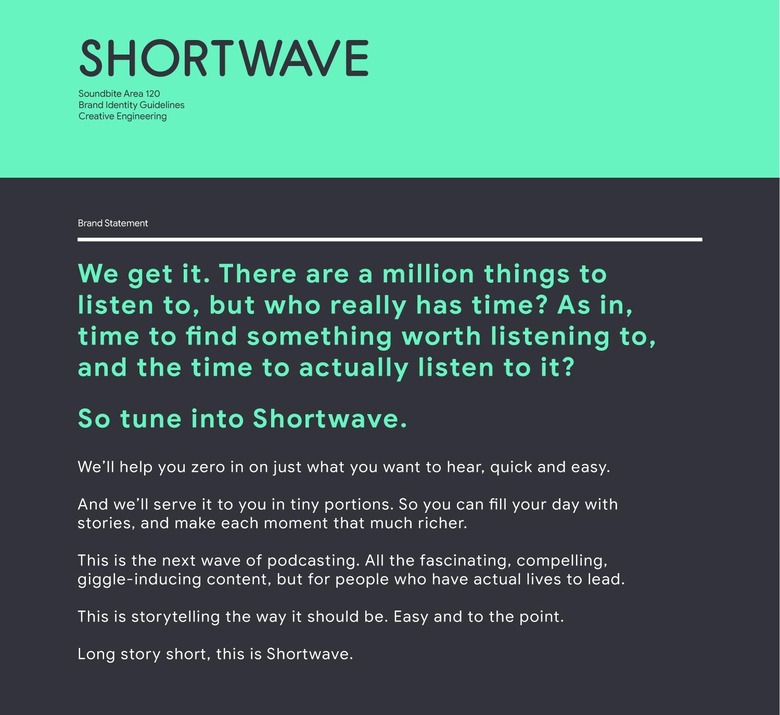Shortwave From Google Area 120 To Serve Podcasts In Tidbits
The podcasting market is experiencing a renaissance, in part due to how easy it is to make podcasts these days and how YouTube has made dreams of popularity come true for once small-time creators. But that rebirth has also caused an explosion of podcasts that have ironically made it more difficult to enjoy those audio content. How do you pick the best ones and, even after that, how do you find enough time to listen to them all? You don't. Instead, you let Shortwave, the podcast experiment from Google's Area 120 labs, do the picking and cutting for you.
Google already applies some AI on its newly launched Google Podcasts, but that serving is like hors d'oeuvre to Shortwave's main course. But more than just learning your preferred podcasts and content types, Shortwave might actually put AI to a more aggressive use, cutting up podcasts into bite-sized chunks.
The idea comes from 9to5Google's examination of design experiments of the app that may have been accidentally left published on the Web. It talks about the overwhelming number of podcasts and how many of those last almost an hour. Rather than simply playing a podcast, Shortwave will instead "help you zero in on just what you want to hear."
This implies that the service will use AI to analyze the content of the podcast and reduce it to 10 minutes at most, focusing on the important parts of an hour-long show. This is no small undertaking and will require the kind of AI that automatic transcriptions software like Voicera are now using to determine the highlights of a long piece of audio content with multiple speakers involved. Shortwave will also have to actually learn what parts will be of interest to the listener, which can differ from person to person.

If Google's Area 120 manages to pull it off, it will have developed an AI that will be useful in doing more than just summarizing podcasts. But as 9to5Google points out, Google will have to tread lightly to avoid opening copyright and privacy cans of worms. Presuming, of course, it ever goes public with this experiment.
